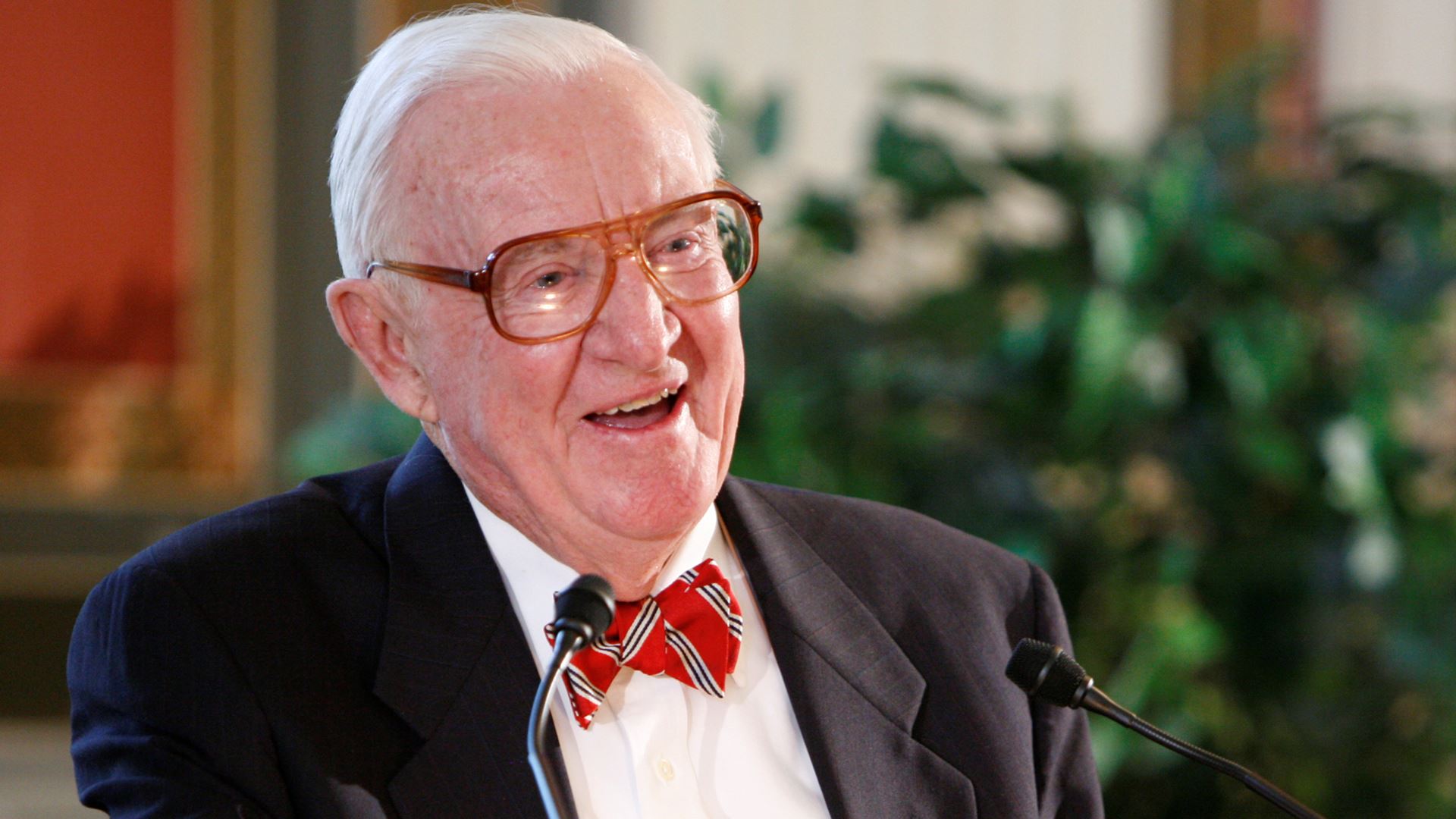Supreme Court Justice John Paul Stevens Papers Open for Research at the Library of Congress
A major portion of the papers of Supreme Court Associate Justice John Paul Stevens is opening for research use on May 2 in the Manuscript Division of the Library of Congress. The collection documents the evolving position of one of the longest-serving justices on the Supreme Court and the transformation of the court itself.
Stevens (1920-2019) was appointed to the Supreme Court in 1975 by President Gerald Ford and served for more than 34 years until his retirement in 2010. The case files in the Stevens Papers reflect his evolution from a relatively unknown justice and moderate conservative early in his career to later emerging as the leader of the court’s liberal contingent when he became senior associate justice in 1994.
Stevens first began depositing his papers at the Library of Congress in 2005, and he converted the collection to a gift in 2010 upon his retirement from the court. An early installment of Stevens’ papers spanning largely from 1975 to 1984 opened for research in October 2020, though access was initially limited during the COVID-19 pandemic.
A larger second portion of the collection spanning primarily from 1984 to 2010 was transferred from the Supreme Court in June 2022, has been processed and organized by Library archivists, and is now opening for research. The newly opened portion amounts to about 741 manuscript containers. Stevens’ most recent files from 2005 to 2010 will remain closed until October 2030, according to Stevens’ gift agreement with the Library.
“Justice John Paul Stevens was a consequential member of the U.S. Supreme Court for decades and a leading voice on many important cases,” said Librarian of Congress Carla Hayden. “We are proud to have Justice Stevens’ papers open for research at the nation’s library, the Library of Congress.”
With Stevens’ papers, the Library holds the collections of 38 justices and chief justices of the court, including John Marshall, Thurgood Marshall, Hugo Black, Earl Warren and Harry A. Blackmun.
“On behalf of the Stevens family, I’d like to express my deepest gratitude to all of those involved in organizing the Justice John Paul Stevens Papers for this exciting opening, particularly my father's former assistant, Janice Harley, and the members of the Manuscript Division of the Library of Congress,” said Susan Mullen, the justice’s daughter. “Given that Justice Stevens was one of the longest serving justices in the history of our country, preparing the files was no small task, and the professionalism and excellence of those involved has been greatly appreciated. Justice Stevens was proud that his papers will be kept at the Library of Congress, and our family hopes that their availability will be of assistance to historians."
During his decades on the court, Stevens participated in significant decisions on a wide range of issues. A few examples include:
- The 2000 presidential election (Bush v. Gore, 2000; Bush v. Palm Beach County Canvassing Board, 2000).
- Abortion rights (Webster v. Reproductive Health Services, 1989; Planned Parenthood v. Casey, 1992).
- Affirmative action (Wygant v. Jackson Board of Education, 1986; City of Richmond v. J. A. Croson Co., 1989; Grutter v. Bollinger, 2003).
- Campaign spending and campaign contributions (McConnell v. Federal Election Commission, 2003, as part of the Bipartisan Campaign Reform Acts).
- Capital punishment cases (Stanford v. Kentucky, 1989; Atkins v. Virginia, 2002; Roper v. Simmons, 2005).
- Freedom of speech (Texas v. Johnson, 1989; McIntyre v. Ohio Elections Commission, 1995).
- LGBTQ+ rights (Bowers v. Hardwick, 1986; Boy Scouts of America v. Dale, 2000; Lawrence v. Texas, 2003).
- Presidential power (Clinton v. Jones, 1997; Clinton v. City of New York, 1998).
- Rights of terrorist detainees (Rasul v. Bush, 2004; Rumsfeld v. Padilla, 2004).
About Justice John Paul Stevens
Stevens was born in Chicago in April 1920 and attended the University of Chicago where he graduated in 1941. He went on to serve in the U.S. Navy during World War II. After the war, Stevens attended the Northwestern University School of Law and clerked for Supreme Court Justice Wiley B. Rutledge before joining a Chicago law firm. Stevens also taught law and served on several commissions and as council for a U.S. House subcommittee on the power of monopolies.
President Richard Nixon appointed Stevens circuit judge of the U.S. Court of Appeals for the Seventh Circuit in 1970. After Justice William O. Douglas retired in 1975, Ford appointed Stevens to the Supreme Court.
How to Conduct Research in the Manuscript Division
Access to the Stevens Papers will be on a first-come, first-served basis. The collection will be served to researchers in the Manuscript Division Reading Room with a limit of two boxes at a time.
A finding aid provides guidance on the contents of the Stevens Papers and is available in both HTML and PDF formats.
Patrons can make copies of collection items consistent with current photocopy and scanning procedures – and staff will also encourage researchers to use smartphones to make single-copy reproductions to reduce the handling of originals.
Patrons must follow normal procedures before gaining access to the collection, such as obtaining a reader registration card, which they can do in advance of the May 2 opening. Personal belongings must be secured in lockers, and all reading room rules and regulations must be followed. For additional information about using the Manuscript Division collections, please visit the division’s website.
The Library of Congress is the world’s largest library, offering access to the creative record of the United States — and extensive materials from around the world — both on-site and online. It is the main research arm of the U.S. Congress and the home of the U.S. Copyright Office. Explore collections, reference services and other programs and plan a visit at loc.gov; access the official site for U.S. federal legislative information at congress.gov; and register creative works of authorship at copyright.gov.
###
PR 23-044
05/02/2023
ISSN 0731-3527

